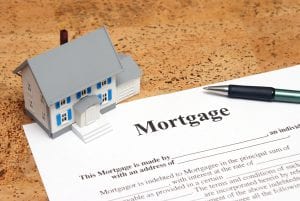Avoid Foreclosure But Be Wary Of Mortgage Relief Scams

Recognizing Mortgage Relief Scams
Mortgage relief scammers use a variety of tactics, from highly targeted methods to more general approaches, to find victims. Some scammers go through the exhaustive process of combing through public records to identify and send personal letters to people in financial distress. Others advertise on the internet or tack up flyers on phone poles, at bus stops or on community bulletin boards. Sadly, there is no miracle cure when it comes to foreclosure, and anything that sounds too good to be true probably is. Here are some common mortgage relief scam techniques to be on the lookout for:
- False documents requiring a signature. Beware of anyone asking you to sign for a “new loan” that will make your mortgage payments current. In reality, you could be actually signing away the title to your home.
- Fake negotiations. Don’t respond to unsolicited phone calls or emails from anyone purporting to be a mortgage lawyer or negotiator. Some scammers claim to be able to negotiate with mortgage companies to lower payments for a small fee, but they will likely just take your money and run.
- Rent-to-buy. With this tactic, scammers convince homeowners who are facing foreclosure to sign over the title to their home. In exchange for the home title, the homeowners are then allowed to “rent” the home with the possibility of buying it back later. Homeowners who fall prey to this scam are unlikely to see their home title again.
- Forensic loan “audits”. In this scenario, mortgage or forensic “auditors” claim to be able to audit mortgage documents to see if the lender fully complied with mortgage laws. While the “auditors” claim to be able to provide homeowners with mortgage relief if the mortgage company is found to be in non-compliance, there is little evidence that this tactic actually works.
Avoiding Mortgage Relief Scams
If you are struggling to make your mortgage payments, contact your lender right away. Your lender may be able to offer some type of repayment plan that works for you. It’s also very important to understand your rights as a consumer. For example, a mortgage provider cannot foreclose on your home immediately, they must provide you with a default notice and 90 days to make any missed payments. With regard to mortgage relief, keep in mind that under the Mortgage Assistance Relief Services (MARS) Rule, businesses are not allowed to charge up-front fees for any mortgage relief assistance until the desired result is achieved. The only exception to this rule, is that attorneys may place an up-front free for legal services into a client trust account. Under MARS, businesses are required to disclose certain information whenever advertising. In addition, attorneys who are assisting with mortgage relief must be licensed in the state where the home is located and must comply with the state’s ethics requirements for attorneys. If you believe that you have been a victim of mortgage relief fraud, contact the Better Business Bureau, the FTC or the Maryland Attorney General’s office.
Steps To Take If Foreclosure Cannot Be Avoided
Despite best efforts, there are times when foreclosure is unavoidable. If this is the case, the most critical matter is to find new housing. Here are some steps to take following a foreclosure:
- Find new housing (possibly temporary and then longer term). The U.S. Departments of Housing and Urban Development connects those seeking housing with HUD-approved counselors.
- Enroll children in school (if moving to a new area).
- Take careful stock of finances and establish a monthly budget with savings, if possible.
- Apply for relief programs, such as SNAP Food Services, if needed.
- Check with a tax counselor to find out if you will need to be prepared to pay taxes on the canceled mortgage debt.
- Work on rebuilding your credit.
What To Look For In A Baltimore Foreclosure Attorney
If you are struggling to make mortgage payments or are already behind on your mortgage, an experienced attorney who is familiar with Maryland foreclosure law can help. In some cases, lenders will offer mortgage payment plans that are tailored to a homeowner’s personal financial situation. Always request the license number of the attorney that you’ve selected to assist you, and then check that number with the Maryland State Bar Association. Avoid any attorney who tries to pressure you into hiring them. If you are facing possible foreclosure, contact Sirody & Associates. Our goal is to help you stay in your home longer, and possibly permanently.
